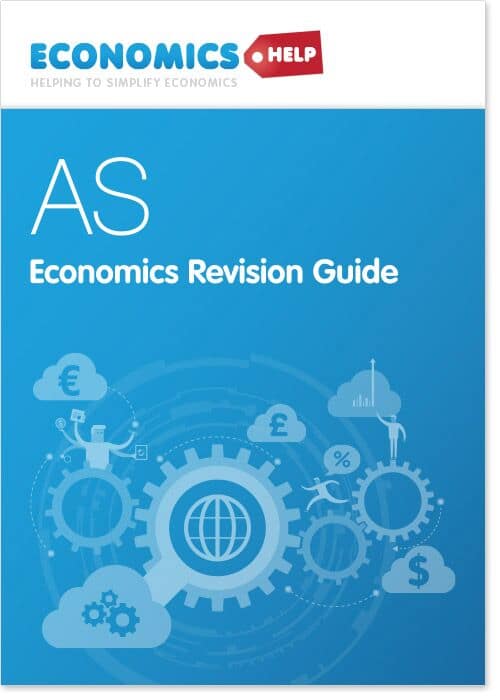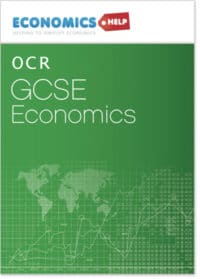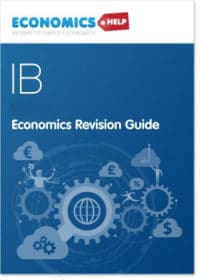AS economics revision guide
£5.50
- AS-Level Economics Revision Guide.
- Simple and clear explanations.
- Relevant diagrams and evaluation to go with basic definitions and concepts.
- Recently updated.
- Economics revision guide (e-book) designed for AS Level. (first year of A level)
If you do a specific exam board, you can choose a specific revision guide:
- OCR Economics revision guide
- Edexcel Economics revision guide
- AQA Economics revision guide
- WJEC Economics revision guide (Welsh board)
- CIE Economics revision guide
Sent shortly after purchase
For schools: Network license – £45.00
Description
AS revision guide
View: 2 page Sample AS Revision Guide
View: Full A level revision guide £8.95
Table of Contents
AS Microeconomics
- Scarcity, choice and opportunity cost
- Production possibility frontiers (PPF)
- Specialisation
- Markets
- Demand
- Supply
- Market equilibrium
- Consumer surplus
- Producer surplus
- Elasticity
- Price elasticity of demand (PED)
- Using knowledge of elasticity
- Income elasticity of demand (YED)
- Cross elasticity of demand (XED)
- Price elasticity of supply
- Tax
- Wage determination
- Market Failure
- Externalities and social efficiency
- Negative externality
- Positive externality
- Public good
- Information gaps
- Merit good
- Demerit good
- Government intervention to correct market failure
- Tax
- Subsidy
- Maximum prices
- Problem of maximum prices
- Minimum prices
- Tradeable pollution permits
- State provision of public services
- Advertising / Information
- Regulation
- Government failure
Macroeconomics
- Circular flow of income
- Aggregate demand (AD)
- Consumer spending (C)
- Investment
- Government expenditure (G)
- Net trade (X-M)
- Aggregate supply (AS)
- Equilibrium national income
- Government macro economic objectives
- Conflicts between objectives
- Economic growth
- Fiscal policy
- The national debt
- Government spending
- Taxation
- Supply side policies
- Unemployment
- Causes of Unemployment
- Policies to reduce unemployment
- Monetary Policy
- Exchange rates
- Factors that influence exchange rates
- The balance of payments
- Current account
- Factors that cause a current account deficit
- Policies to reduce a balance of payments deficit
- Trade





